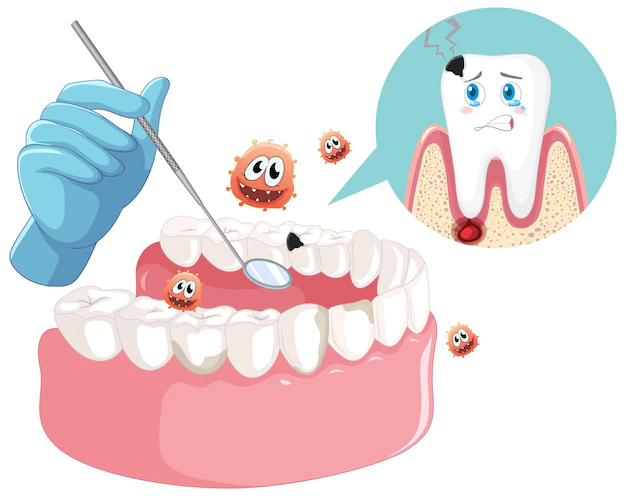Cavities

Cavities, also known as dental caries, are one of the most common dental problems. They occur when bacteria in your mouth produce acids that dissolve the enamel of your teeth, leading to a hole or cavity in the tooth.
Symptoms of cavities may include tooth sensitivity, pain when biting or chewing, visible holes or pits in the teeth, and discoloration or staining of the teeth. If left untreated, cavities can progress and cause infection, tooth loss, and other complications.
There are several factors that can increase your risk of developing cavities, including poor dental hygiene, a diet high in sugar and carbohydrates, dry mouth, and certain medical conditions or medications. To prevent cavities, it is important to practice good dental hygiene, such as brushing your teeth at least twice a day with fluoride toothpaste, flossing daily, and using mouthwash.
In addition, limiting sugary and acidic foods and drinks can help to reduce your risk of cavities. You should also aim to visit your dentist regularly for cleanings and checkups, as this can help to catch cavities early and prevent them from progressing.
If you do develop a cavity, treatment options may include filling the cavity with a dental filling, or in more severe cases, a root canal or extraction may be necessary. Your dentist will work with you to develop a personalized treatment plan based on the severity of your cavities and your overall oral health. By practicing good dental hygiene and seeking prompt treatment for cavities, you can help to prevent complications and maintain good oral health.
